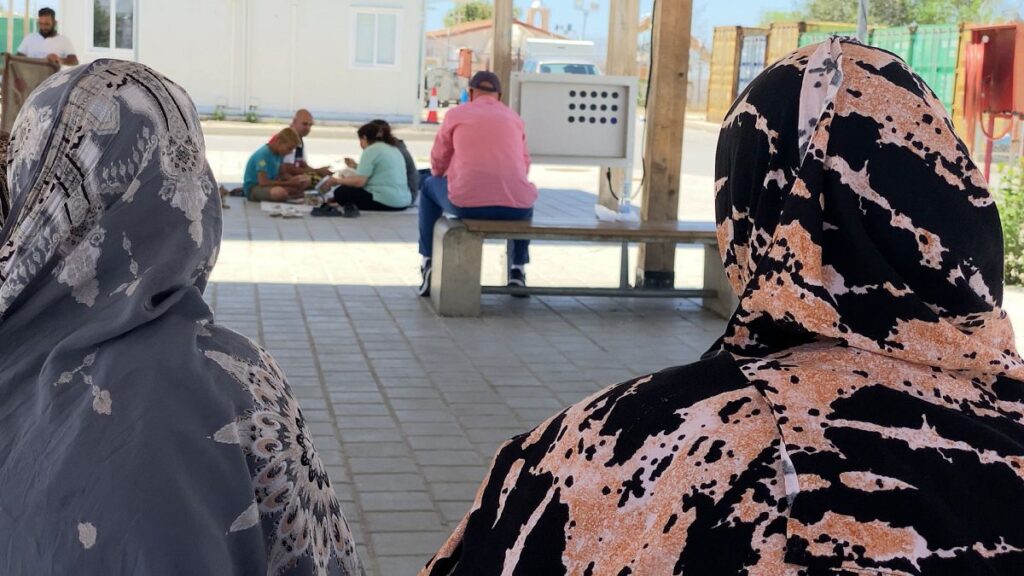The republic, the northern part of which is occupied by Turkey, is trying to manage arrivals up to its capacity.
The Republic of Cyprus has recorded a significant number of asylum seekers this year. Their massive arrival, which mainly took place until the spring, sparked a lively debate on the limits of reception in the country. Julian Lopez visited the site in this issue of Witness.
Many Cypriots fear that the arrival of migrants, mainly Muslims, will cause socio-economic and security problems, but also an identity, demographic and even existential threat for the country, the north of which has been occupied by the Turkish army since 1974.
“Cyprus has about 800,000 inhabitants,” notes Christakis Meleties, mayor of Kokkinotrimithia. “If there are 250,000 foreigners here, it means that they represent 25 to 30 percent of the population. If we cannot tell them to leave because of the policies of the European Union, it means that in ten years, with their wives and children, they will be more than a million. We would become like Lebanon. We want to remain Greek Cypriots here in Cyprus.”
The town hall is located near the Pournara First Reception Centre, which houses immigrants upon their arrival in the Republic of Cyprus. “Every day we hear about someone who has died. Someone who has been killed,” says an 18-year-old asylum seeker who fled Yemen. “I left this context to obtain rights, peace and freedom. I have dreams. I have a future.”
Asylum seekers whose applications are admissible are then sent to a second centre, located in the village of Kofinou, in the south of the country.
Around 800 residents currently benefit from housing, food, classes, medicine, money for personal expenses, and can go out freely during the day. In response to recent mass arrivals of Syrians, the center is being expanded. The government also suspended the examination of all asylum applications from Syrian citizens for 14 months.
Once released from the centre, asylum seekers receive a monthly allowance and are encouraged to integrate.
But to avoid a vacuum, the government prohibits them from looking for work for nine months after their arrival.
Without legal employment or a family network, many rely on charity centers for clothing or school materials. “Everyone thinks that because most migrants have cell phones, and there is a lot of information circulating, that they know everything, but that is not the case, because the smugglers or People along the way give them bad information, including that if you have a child in Cyprus or the European Union, they will automatically get a residence permit or European citizenship, which is not the case. , explains Elizabeth Kassini, director of Caritas Cyprus.
The Orthodox Church of Cyprus has a very clear view on immigration. It accuses Turkey of trying to unbalance the country’s demographics. “The majority (of asylum seekers) have another religion,” said Archbishop Georgios, spiritual leader of the Orthodox Church of Cyprus. “This is damaging our society. We already have a lot of problems and we cannot burden ourselves with such a high proportion of foreigners (in the population).”
Under pressure from the Church, the far right and growing social discontent, the government is trying to increase the number of voluntary returns. According to the Minister of the Interior, Cyprus is the fourth EU country in terms of voluntary returns. He now wants to go further: “We firmly believe that we must fight illegal immigration, because we believe that Member States must decide – under international law – who will cross their borders, and it is not up to smuggling groups or traffickers to do so,” explains Konstantinos Ioannou.
Official figures show that up to 96% of asylum applications are ultimately refused.

